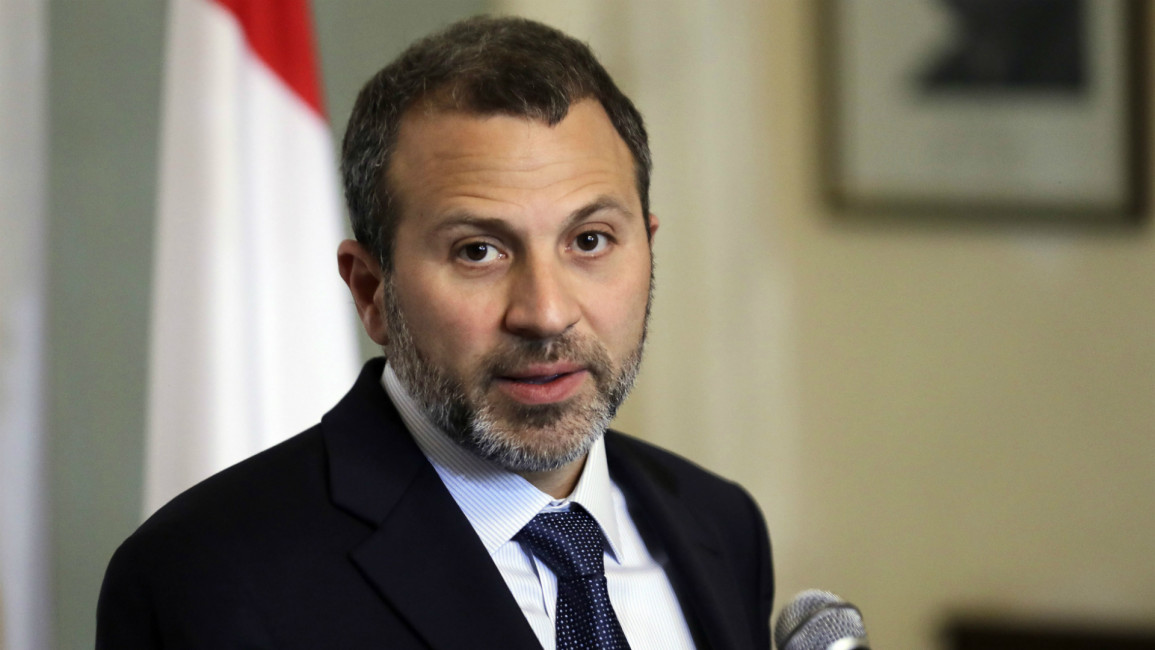Lebanon calls for economic sanctions against the US
Lebanon has suggested Arab nations should slap sanctions on the Washington over Donald Trump's decision to recognise Jerusalem as Israel's capital and move the US embassy to Jerusalem.
A meeting of Arab League foreign ministers on Saturday, saw Lebanon's Foreign Minister Gebran Bassil call for preemptive measures against the US to prevent it moving its embassy in Israel from Tel Aviv to Jerusalem.
"Pre-emptive measures [must be] taken against the decision ... beginning with diplomatic measures, then political, then economic and financial sanctions," Bassil said at the meeting of foreign ministers in Cairo.
During his dramatic speech, Bassil called for Arab unity around the issue of Jerusalem.
"Could this calamity bring us together and wake us from our slumber? Let it be known that history will never forgive us and our future will not be proud of what we have done," he told the meeting.
Bassil also called for an emergency Arab summit, a proposition that's said to have been embraced by several Arab league member-states.
 |
The final Arab League statement however made no mention of economic sanctions. |  |
Sharp criticism and fiery speeches
The final Arab League statement however made no mention of economic sanctions.
Arab criticism of the plans contrasted sharply with the praise Trump initially received during the start of his term in January from US traditional allies.
In speech after speech, Arab foreign ministers kicked off an emergency meeting in the Egyptian capital on Saturday with scathing criticism of President Donald Trump's decision to recognise Jerusalem as Israel's capital.
Few ideas on how to counter Washington's move were turned into concrete actions at the end of the session.
The Arab League meeting - which brings together foreign ministers from member states - took place as protests continued in the West Bank and Gaza Strip, amid a global backlash against Trump's move.
The Cairo meeting's televised public session began at 9pm local and ended two-and-a-half hours later after nearly 20 chief delegates spoke. Their comments ranged from blasting Trump's decision to the need for concrete action to musings on whether fiery speeches would change anything.
"If we do nothing about this one [Trump's decision], there will be many, many more tragedies," warned Iraq's Foreign Minister Ibrahim al-Jaafari. "No normalisation [with Israel] and no compromises."
 |
Arab League chief Ahmed Aboul-Gheit and Palestinian Foreign Minister Riyad Al-Maliki called on world nations to recognise the State of Palestine with East Jerusalem as its capital |  |
Recognise Palestine
Earlier, Arab League chief Ahmed Aboul-Gheit and Palestinian Foreign Minister Riyad al-Maliki called on world nations to recognise the State of Palestine with East Jerusalem as its capital in response to Trump's decision.
Aboul-Gheit said Trump's decision "condemned" the country that took it and the administration that passed it. It also raised a question mark over Washington's role as a peace mediator, not just in the Middle East but in the entire world.
"The decision amounts to the legalisation of occupation," said Aboul-Gheit, alluding to the occupation and later annexation of east Jerusalem by Israel in the 1967 Middle East war.
Maliki called on the league to instruct its envoys in the United Nations to submit a draft resolution to the UN Security Council condemning Trump's decision.
Trump's decision, he said, "betrays its hostility and bias against the Palestinian people".
Israel regards Jerusalem, including both its Jewish-majority Western part and Arab-majority East Jerusalem captured in the 1967 war, as its capital.
Nearly the entire world rejects this position, saying Jerusalem's status should be determined in peace talks with the Palestinians.
East Jerusalem, which includes the Old City and holy sites revered by Jews, Christians and Muslims, is considered occupied Palestinian territory under international law.
The Palestinians hope it would become the capital of their future state once agreed in final status negotiations with Israel, according to the 1993 Oslo Accords. Trump's move puts this hope in serious jeopardy.



